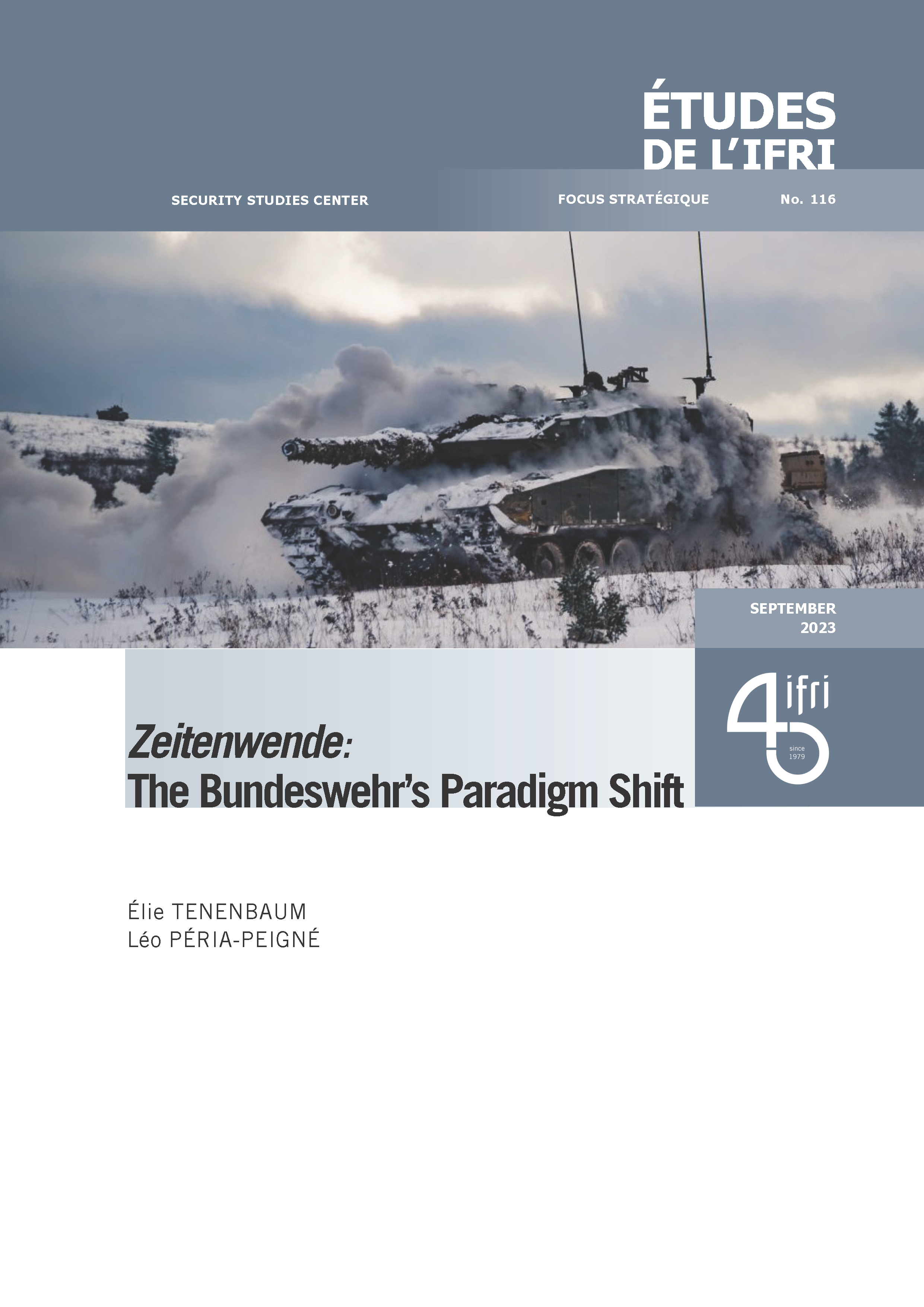Zeitenwende: The Bundeswehr’s Paradigm Shift

Russia’s invasion of Ukraine on February 24, 2022, marked a turning point in German defense policy. After thirty years of military downsizing, the Bundeswehr found itself at an extremely low capability level just as a high-intensity war involving a great power was breaking out on Europe’s doorstep for the first time since 1945. Chancellor Olaf Scholz’s response was to embrace this “turning point” (Zeitenwende) by launching a major program to reequip Germany’s armed forces.
However, this change is part of a longer trend that started after the first wake-up call in 2014, following which Germany began tentatively to rebuild its military power. Under American pressure to share the defense burden, the new government that took office in 2021 included in its coalition agreement a national security strategy and an increase in defense spending. The war in Ukraine precipitated these decisions, combining the urgent need to provide arms with the more gradual pace of a long-term rearmament program.
In order to implement this rearmament plan, Olaf Scholz’s government set up a special fund (Sondervermögen) of €100 billion, financed by debt and dedicated entirely to the procurement of new materiel for the Bundeswehr. In addition to capability modernization, the Zeitenwende is founded on significant ambition within NATO. The North Atlantic Alliance remains the fundamental framework for the Bundeswehr, both on a conceptual and a doctrinal level. Finally, this multilateral integration is underpinned by a robust network of bilateral cooperations. The first and most important of these is undoubtedly with the United States; this relationship is carefully cultivated by Berlin despite the tensions caused by American frustrations with German shortcomings on defense issues.
All of these considerations bring us to an assessment of the implications of such a change for France, both in its partnership with Germany and at the European and transatlantic level.

Available in:
Regions and themes
ISBN / ISSN
Share
Download the full analysis
This page contains only a summary of our work. If you would like to have access to all the information from our research on the subject, you can download the full version in PDF format.
Zeitenwende: The Bundeswehr’s Paradigm Shift
Related centers and programs
Discover our other research centers and programsFind out more
Discover all our analysesThe Franco-German Brigade and the Revival of European Defense
One thing has been clear since Donald Trump's return to the White House: the very existence of the European unification project is threatened. Unless it develops a sovereign defense policy to counter the war in Ukraine and the weakening of American security guarantees, the European Union will continue to see its internal cohesion and external attractiveness wane.
Taking the Pulse: Can Europeans Build Their Independent Extended Nuclear Deterrent?
Confronted with a U.S. disengagement and the Russian threat, Europeans are reconsidering their stance on nuclear deterrence. Given the capabilities of the French and British arsenals, can Europe develop an independent nuclear deterrent?

RAMSES 2024. A World to Be Remade
For its 42nd edition, RAMSES 2024 identifies three major challenges for 2024.
A Transatlantic Defense Industrial Base? Two Contrasting Views
The evolving landscape of global defense cooperation has brought the transatlantic relationship between the United States (US) and Europe into sharp focus. As geopolitical tensions rise and the threat environment becomes more complex, the question of how Europe can best ensure its security while navigating its relationship with the United States has become paramount. This double feature report offers two contrasting views on the dynamics of US-Europe defense industrial relations, highlighting the challenges and opportunities that lie ahead for both parties.











